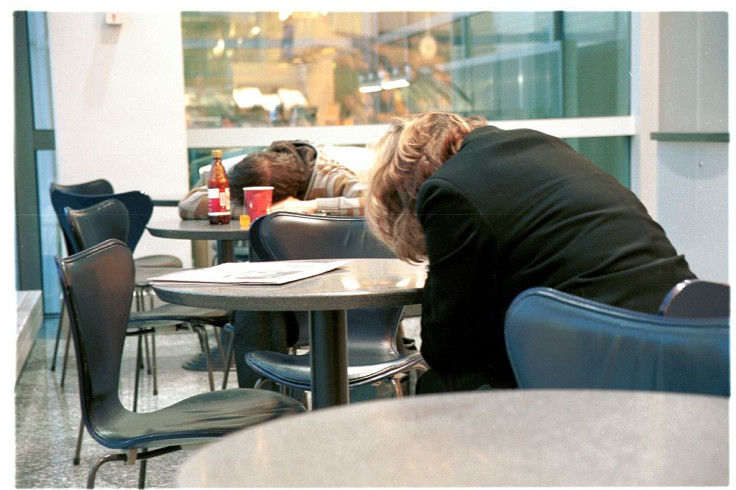Jet Lag Forever: Night Shift Workers Face Some Of The Greatest Health Risks

The red-eye flight from Paris to New York is rough. But imagine taking it twice a week for your entire life. Eventually, your body’s immune system will begin to lose the fight against an unstable sleep schedule. You’ll risk infections and long-term disorders, including cancer and cardiovascular disease — not to mention the hits you’ll take to your general alertness and productivity.
Such is the life of night shift work, according to the latest results of an ongoing study of female nurses at Brigham and Women’s Hospital in Boston. Launched in 1976, the Nurses’ Health Study now includes almost 75,000 nurses. The most recent results? After only five years on the job, nurses who work irregular and around-the-clock shifts face marked increases in all-cause and cardiovascular disease mortality risks.
Dr. Eva Schernhammer, senior author and associate professor of medicine at Harvard Medical School, says the greatest risks are found in alternating between working normal hours and pulling the graveyard shift — what she calls “constant jet lag” — mostly because our circadian rhythms never adjust. With a disrupted sleep schedule, our bodies fail to enter many of the cycles needed to maintain adequate health. We are dangling rock climbers desperately looking for a ledge to grasp.
An irregular sleep schedule “affects a variety of important things, including antioxidant activity, immune system, vessels can be impacted, and blood pressure changes,” Schernhammer told Medical Daily. “So if this happens over many years, it leads to chronic disease alterations. This is another piece of evidence, what we’ve published, that supports that notion.”
In their latest review of the evidence, Schernhammer and her colleagues analyzed the mortality rates from 74,862 nurses aged 30 to 55 between 1976 and 2010. They found increases in cardiovascular disease mortality rates in all women who worked night shifts and even bigger jumps among those who had worked 15 years or more. Cancer rates held steady except for lung cancer, which showed a 25 percent greater risk. Overall, early death increased by 11 percent among rotating shift workers.
Other research has reached many of the same conclusions. In 2013, a study found night shift work was linked to reproductive health risks in women. Before that, two separate studies found ties to ovarian and prostate cancer. The same forces that seemed to affect subjects in prior work reappeared for the latest investigators: Improper sleep throws off the body’s ability to fight biological invaders and, essentially, to keep the peace.
While the latest study involved only female subjects from one profession, Schernhammer says the findings can — and should — be expanded to include the general public. Nurses face rotating shifts because their jobs demand it. Other people may face the unstable hours by choice or because of other self-imposed constraints. The health effects, and the recommendations people like Schernhammer are likely to dole out, remain the same.
For one, if working inconsistent hours is unavoidable, people should focus on minimizing their other risk factors. Women with a history of breast cancer in the family, for instance, should consider frequent mammograms and self-examinations to check for tumors. “Then that leaves, overall, a minimally increased risk related to your occupation,” Schernhammer said. “Hopefully that can minimize any fears that people may have.”
On the other hand, the best advice may simply be to find a position with more stable hours. In some industries that may be impossible, as medicine is particularly rigid, but if cancer and early death are on the line, the research suggests you’d be hard-pressed to find a job whose unpredictable hours are worthwhile.
Source: Gu F, Han J, Laden F, et al. Total and Cause-Specific Mortality of U.S. Nurses Working Rotating Night Shifts. American Journal of Preventive Medicine. 2015.



























